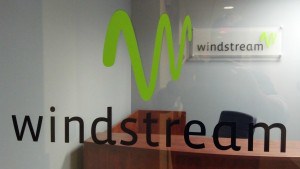 Windstream Communications is under investigation by the Governor’s Office of Consumer Protection because of allegations the company is advertising broadband speeds and performance the company simply cannot deliver its customers in Georgia.
Windstream Communications is under investigation by the Governor’s Office of Consumer Protection because of allegations the company is advertising broadband speeds and performance the company simply cannot deliver its customers in Georgia.
A Windstream employee in a company retail office in Dawsonville told an undercover CBS Atlanta photographer that the company can offer Internet speeds up to 24Mbps. He guaranteed service no slower than 6 to 12Mbps. But Mark Creekmore, who lives in Dawsonville, reports his speeds sometimes barely reach 1Mbps during the afternoons.
Duane Hartness, a Windstream customer, says Windstream has oversubscribed their service by continuing to sell broadband on a network that is overcrowded as-is, which slows speeds for every customer.
“Every customer they add to their oversubscribed DSLAM increases their revenue while further degrading your bandwidth,” Hartness said. “Lacking competition, they can ignore any and all complaints.”
Creekmore wants every Windstream customer in Georgia that is dissatisfied with their broadband service to file complaints with the state agency.
“The more complaints, the more likely the Office of Consumer Protection is to take action,” Creekmore said. “Please make sure to include that you are not getting what you are paying for and any other personal detail that would help them understand what you have gone through. If you have had multiple communications with Windstream, please include those details as well. In short, the more detail the better.”
[flv width=”640″ height=”380″]http://www.phillipdampier.com/video/WGCL Atlanta Windstream Exposed for Not Providing Speeds Promised 3-7-13.mp4[/flv]
WGCL — CBS Atlanta reports there are new developments in Georgia regarding Windstream: It is under investigation by the governor’s office for misleading subscribers with broadband speeds the company cannot actually deliver. (3 minutes)
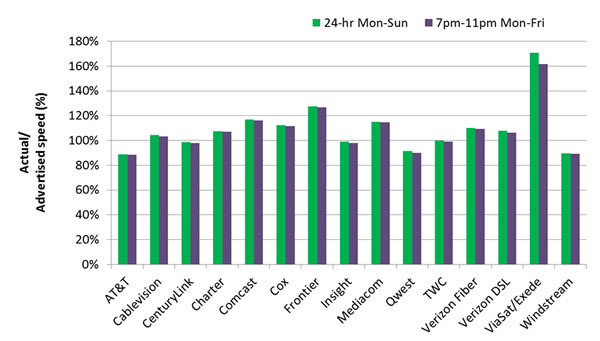
The FCC finds Windstream is the worst of the worst among DSL providers, only giving customers advertised speeds 81 percent of the time. AT&T, Georgia’s largest phone company, doesn’t do much better.
Windstream is the worst-performing DSL provider in the country according to the Federal Communications Commission, with just 81 percent of customers getting the broadband speeds marketed.
After complaints about the company helped derail H.B. 282 — a bill Windstream heavily lobbied for that would have eliminated possible competition from community-owned providers — Windstream representatives quickly began promising upgrades.
“We’re asking our customers to be patient with us because we’re on it. We understand that they have issues and we’re working to upgrade their network,” Bettye Willis, a regional vice president at Windstream, told the CBS station in Atlanta.
Willis added Windstream was committed to solving its Internet speed problems, but not for everyone.
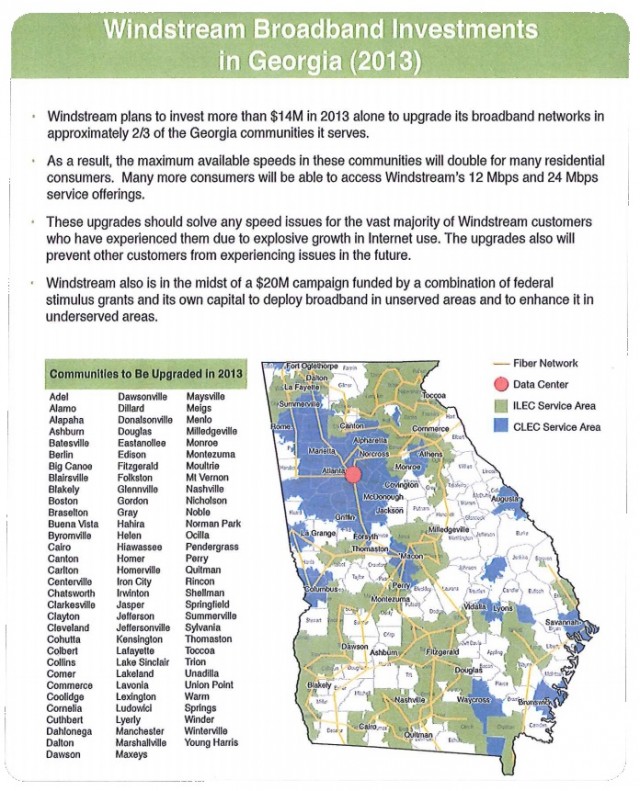
The company released this map showing planned service upgrades for “two-thirds of the communities it serves” in Georgia. But the company warned not everyone would receive improved service. For the remaining one-third, “take it or leave it” broadband service will continue.


 Subscribe
Subscribe
 Alex Atwood (R – Brunswick) District 179
Alex Atwood (R – Brunswick) District 179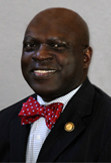
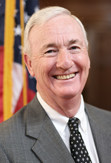

 Cable, satellite, and telco-TV subscribers face paying an extra $12 a year for two new sports channels that are certain to be added to the lineup by this summer.
Cable, satellite, and telco-TV subscribers face paying an extra $12 a year for two new sports channels that are certain to be added to the lineup by this summer.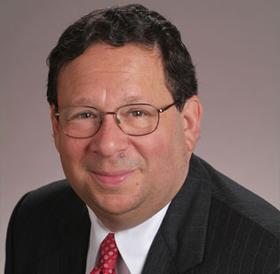
 Stop the Cap! has developed a sample e-mail message Georgia residents can use to petition the state legislature to vote NO on H.B. 282, the latest Big Telecom corporate welfare bill to kill competition from publicly-owned broadband networks. With thanks to Mark Creekmore, one of many rural Georgians suffering with DSL “service” from Windstream Communications, we have jointly created this letter to illustrate the folly of this bad bill. We may need to
Stop the Cap! has developed a sample e-mail message Georgia residents can use to petition the state legislature to vote NO on H.B. 282, the latest Big Telecom corporate welfare bill to kill competition from publicly-owned broadband networks. With thanks to Mark Creekmore, one of many rural Georgians suffering with DSL “service” from Windstream Communications, we have jointly created this letter to illustrate the folly of this bad bill. We may need to 